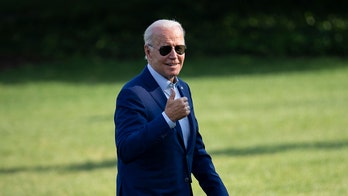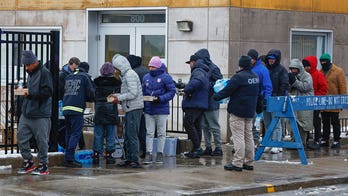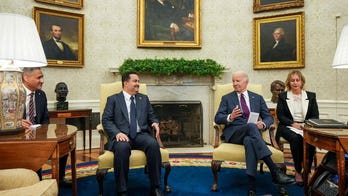WASHINGTON – Business and labor groups moved close Friday to resolving a dispute over a new low-skilled worker program that had threatened to stall negotiations on a sweeping immigration bill in the Senate, officials said.
Sen. Chuck Schumer, D-N.Y., who's been brokering talks between the AFL-CIO and the Chamber of Commerce, said in a statement that negotiators are "very close, closer than we have ever been, and we are very optimistic." He said there were still a few issues remaining.
The talks stalled late last week amid a dispute over wages for workers in the new program, and senators left town for a two-week recess with the issue in limbo. Finger-pointing erupted between the AFL and the chamber, with each side accusing the other of trying to sink immigration reform, leaving prospects for a resolution unclear.
But talks resumed this week, and now officials from both sides indicate the wage issue has been largely resolved. An agreement would likely clear the way for a bipartisan group of senators to unveil legislation the week of April 8 to dramatically overhaul the U.S. immigration system, strengthening the border and cracking down on employers as well as remaking the legal immigration system and providing a path to citizenship for 11 million illegal immigrants already in the U.S.
"We're feeling very optimistic on immigration: Aspiring Americans will receive the road map to citizenship they deserve and we can modernize `future flow' without reducing wages for any local workers, regardless of what papers they carry," AFL-CIO spokesman Jeff Hauser said in a statement. "Future flow" refers to future arrivals of legal immigrants.
The new visa program would bring up to 200,000 lower-skilled workers a year to the country. The number of visas would fluctuate according to demand, and the workers would be able to change jobs and could seek permanent residency. Under current temporary worker programs workers can't move from employer to employer and have no path to permanent U.S. residence and citizenship.
The new visas would cover dozens of professions such as long-term care workers and hotel and hospitality employees. Currently there's no good way for employers to bring many such workers to the U.S.; an existing visa program for low-wage nonagricultural workers is capped at 66,000 per year and is supposed to apply only to seasonal or temporary jobs.
Officials with the AFL-CIO and the Chamber of Commerce said there's an agreement for workers to get paid prevailing wages for the industry they're working in. The labor organization had accused the chamber of trying to pay workers in the new program poverty-level wages, something the chamber disputed.




